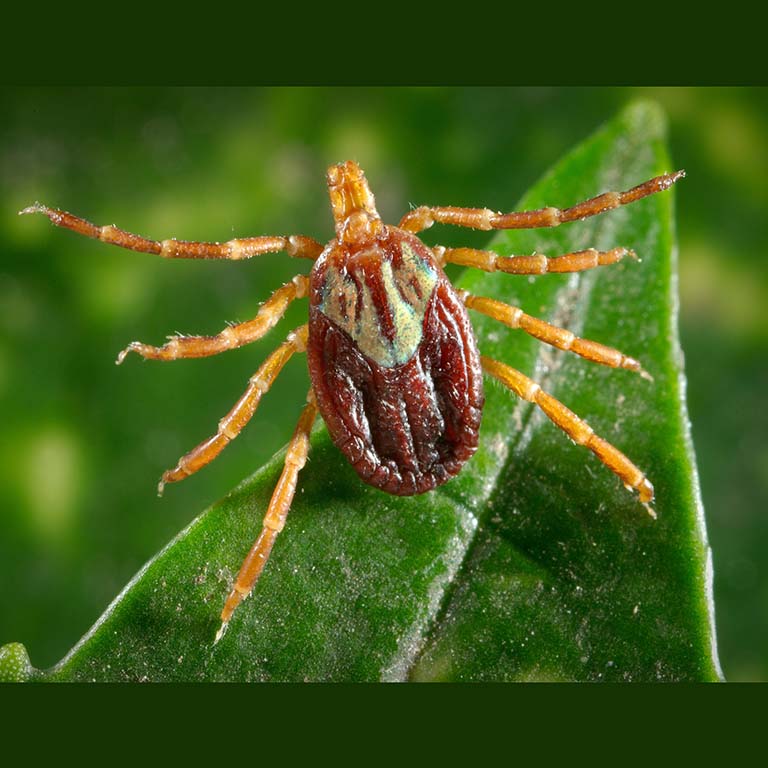Indiana University researchers have confirmed a tick species and known disease-carrying arachnid in southern Indiana typically associated with the southeastern United States.
Earlier this year, researchers collected an adult female Gulf Coast tick, a species predominantly found in states that border the Gulf of Mexico, near the Wabash River in Posey County. The finding is the second instance of a Gulf Coast tick documented in southwestern Indiana. The Indiana State Department of Health recorded the first instance in neighboring Gibson County in 2016.
The most recent detection is the result of an ongoing tick and mosquito surveillance project being carried out by Indiana University's Environmental Resilience Institute, part of the Prepared for Environmental Change Grand Challenge. Launched in 2018, Project Vector Shield collects ticks and mosquitoes at sites throughout the state to monitor species populations and provide an early warning for new disease vectors that pose a threat to people and livestock.


 The College of Arts
The College of Arts